
Iquique: The Jewel of the Northern Chilean Coast
Nestled between the vast Pacific Ocean and the Atacama Desert, Iquique is a mesmerizing blend of natural beauty and rich history. This coastal city, known for its stunning beaches and vibrant culture, offers a unique experience for every traveler. The city’s history as a major hub during the nitrate boom of the 19th century is still visible in its well-preserved architecture, giving visitors a glimpse into its prosperous past. Iquique's Cavancha Beach is a paradise for sun-seekers and water sports enthusiasts alike. The golden sands and gentle waves make it an ideal spot for swimming, surfing, and soaking up the sun. The nearby Baquedano Street, lined with charming wooden buildings, invites you to take a leisurely stroll and immerse yourself in the local culture. The street is also home to a variety of shops, cafes, and museums that showcase the city’s cultural and historical heritage. For those interested in adventure, Iquique offers a range of activities from paragliding off the coastal cliffs to exploring the nearby Atacama Desert. The Cerro Dragon, one of the largest urban sand dunes in the world, provides a thrilling terrain for sandboarding. The rich marine life along the coast also makes Iquique a great destination for scuba diving and fishing. Whether you are looking for relaxation or excitement, Iquique has something for everyone.
Local tips in Iquique
- Visit Cavancha Beach early in the morning to enjoy a peaceful environment before the crowds arrive.
- Explore the historic Baquedano Street to witness the city's unique wooden architecture and vibrant culture.
- Try paragliding from the coastal cliffs for an unforgettable view of the city and the ocean.
- Wear plenty of sunscreen and stay hydrated, especially when exploring the Atacama Desert.
- Check local schedules for festivals and events to experience Iquique's culture and traditions firsthand.
Iquique: The Jewel of the Northern Chilean Coast
Nestled between the vast Pacific Ocean and the Atacama Desert, Iquique is a mesmerizing blend of natural beauty and rich history. This coastal city, known for its stunning beaches and vibrant culture, offers a unique experience for every traveler. The city’s history as a major hub during the nitrate boom of the 19th century is still visible in its well-preserved architecture, giving visitors a glimpse into its prosperous past. Iquique's Cavancha Beach is a paradise for sun-seekers and water sports enthusiasts alike. The golden sands and gentle waves make it an ideal spot for swimming, surfing, and soaking up the sun. The nearby Baquedano Street, lined with charming wooden buildings, invites you to take a leisurely stroll and immerse yourself in the local culture. The street is also home to a variety of shops, cafes, and museums that showcase the city’s cultural and historical heritage. For those interested in adventure, Iquique offers a range of activities from paragliding off the coastal cliffs to exploring the nearby Atacama Desert. The Cerro Dragon, one of the largest urban sand dunes in the world, provides a thrilling terrain for sandboarding. The rich marine life along the coast also makes Iquique a great destination for scuba diving and fishing. Whether you are looking for relaxation or excitement, Iquique has something for everyone.
When is the best time to go to Iquique?
Iconic landmarks you can’t miss
Clock Tower
Discover Iquique's iconic Clock Tower in Plaza Prat: a blend of Gothic and Islamic architecture with a rich history dating back to 1878.
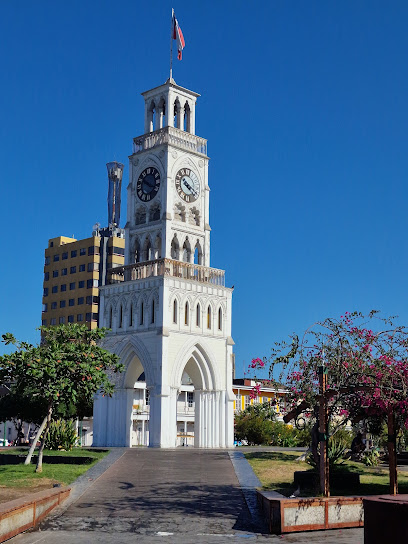
Corbeta Esmeralda Museum
Immerse yourself in the rich maritime history of Chile at the Corbeta Esmeralda Museum, where the past comes alive through captivating exhibits and the iconic ship.
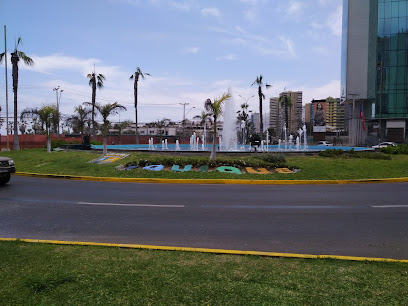
Caleta Riquelme
Discover the vibrant Caleta Riquelme market in Iquique, where fresh seafood and local crafts come together in a lively coastal setting.
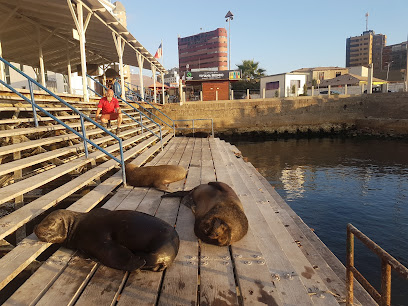
Hilton Garden Inn Iquique
Discover the comfort and convenience of Hilton Garden Inn Iquique, a perfect retreat for tourists exploring the coastal wonders of Tarapacá.

Playa Huaiquique
Experience the vibrant beauty of Playa Huaiquique, a stunning beach in Iquique, Chile, where adventure and relaxation meet along the Pacific coast.
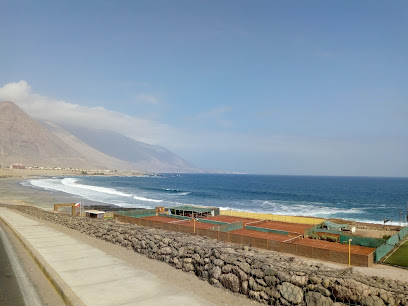
Playa Cavancha
Discover Iquique's iconic Playa Cavancha: Warm waters, soft sands, and endless activities await in this vibrant Chilean coastal paradise.
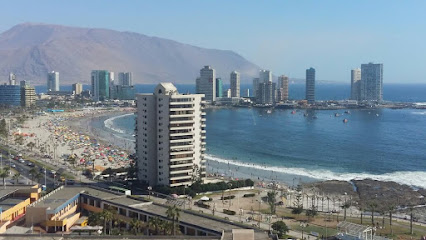
Museo Regional
Discover the captivating history of Iquique and the Tarapacá region at this local history museum.
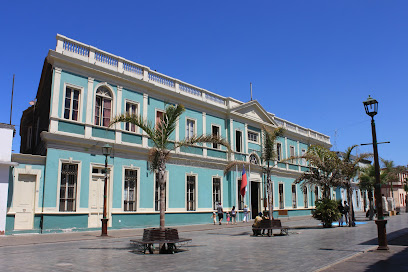
PLAYAS EN IQUIQUE
Explore the stunning beaches of Iquique, Chile, where golden sands meet the Pacific Ocean for an unforgettable coastal adventure.
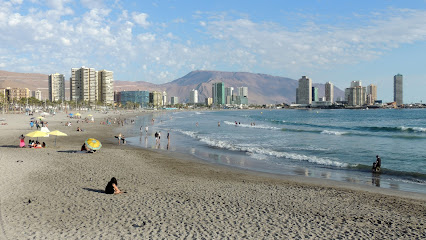
Marinero Desconocido
A tribute to Chilean sailors, the iconic Marinero Desconocido monument offers stunning coastal views and a poignant reminder of maritime history.
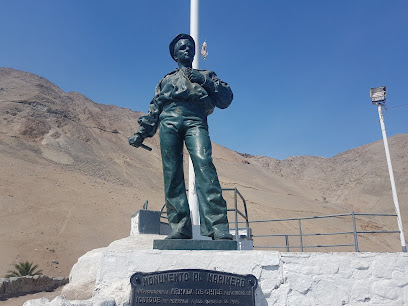
Backpacker`s Hostel Iquique
Discover Backpacker's Hostel Iquique: a vibrant haven for explorers seeking comfort, community, and adventure in the heart of Chile's stunning coastal city.

Palacio Astoreca
Explore Iquique's history at Palacio Astoreca, a cultural center showcasing art and exhibitions in a beautifully preserved mansion from the nitrate era.
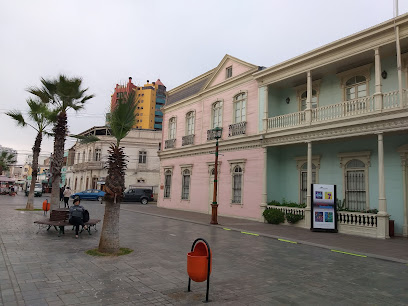
Museo Historico Militar
Discover Chile's military past at Museo Histórico Militar, a captivating museum in Iquique featuring engaging exhibits and rich historical insights.
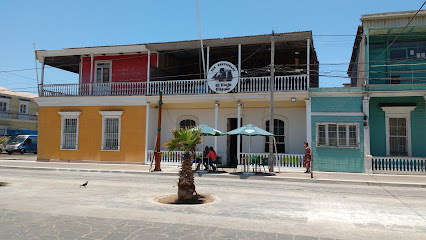
Monumento al Pampino
Discover the Monumento al Pampino in Iquique, a historical tribute to the saltpeter workers that shaped Chile's cultural heritage amid stunning landscapes.
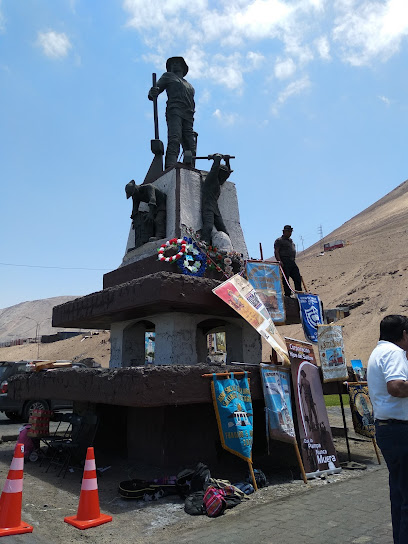
Museo Naval De Iquique
Explore Chile's naval heritage at the Museo Naval de Iquique, home to relics from the War of the Pacific and the legendary Esmeralda Corvette.
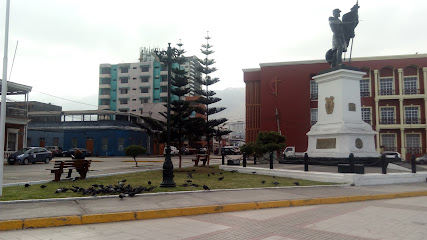
Municipal Theater
Experience the elegance and cultural richness of Iquique at this historic performing arts venue.
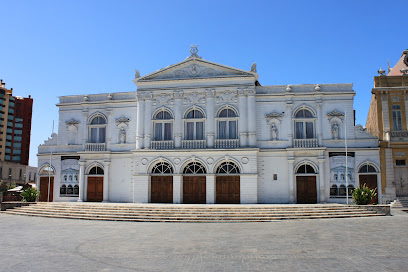
Unmissable attractions to see
Corbeta Esmeralda Museum
Explore the maritime history of Chile at Corbeta Esmeralda Museum in Iquique, where the past comes alive through engaging exhibits and stories.
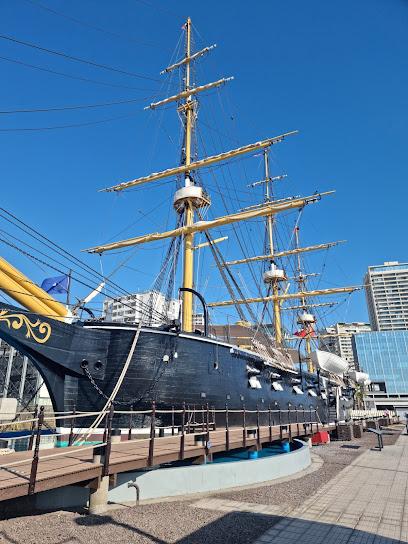
Caleta Riquelme
Experience the flavors and culture of Iquique at Caleta Riquelme Market, a must-visit destination for food lovers and local artisans.
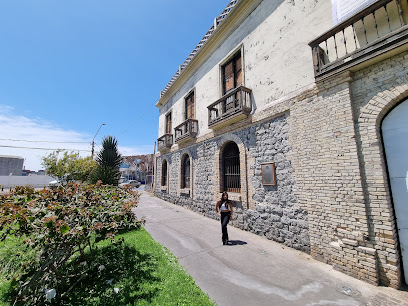
Yacaré Park
Discover the tranquility of Yacaré Park, a lush urban oasis in Iquique, perfect for relaxation and nature exploration.
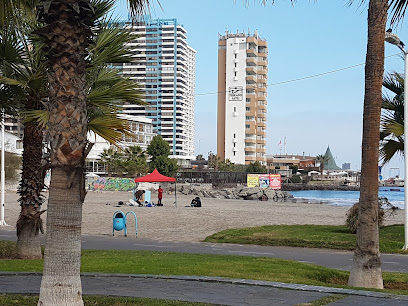
Playa Huaiquique
Experience the natural beauty and vibrant culture of Playa Huaiquique, a premier beach destination in Iquique, Chile, perfect for relaxation and adventure.
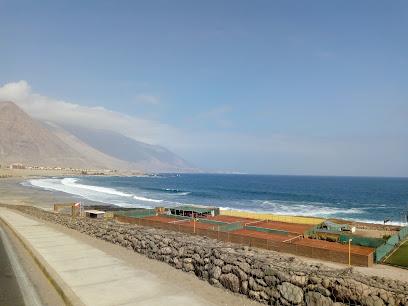
Estación Buque Varado
Explore the tranquil beauty and rich history of Estación Buque Varado, a serene park in Iquique, Tarapacá, perfect for relaxation and cultural immersion.
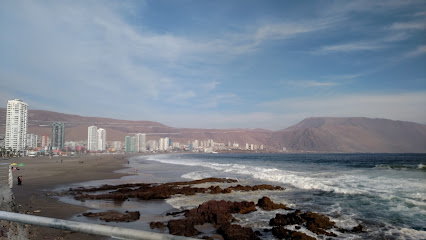
Playa Cavancha
Experience the vibrant beauty of Playa Cavancha in Iquique, where golden sands meet turquoise waters, perfect for relaxation and adventure.
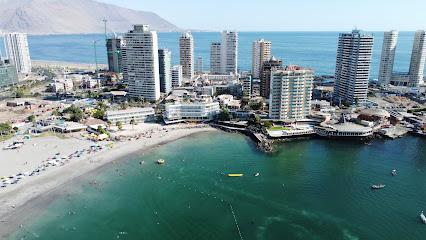
Museo Regional
Explore the rich cultural heritage of Iquique at Museo Regional, a local history museum showcasing fascinating artifacts and exhibits.
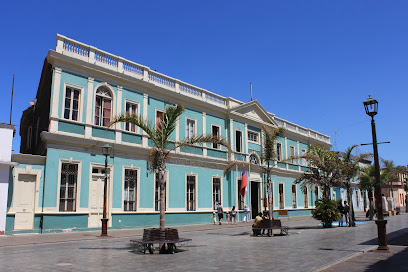
Marinero Desconocido
Explore the captivating Marinero Desconocido in Iquique, where stunning coastal views and vibrant local culture come together for an unforgettable experience.
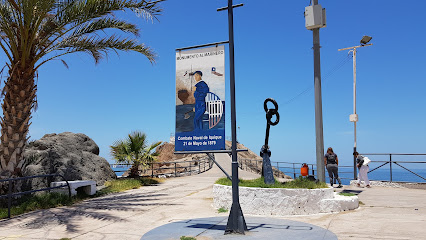
Palacio Astoreca
Explore the rich history and vibrant art scene at Palacio Astoreca, Iquique's premier cultural center, showcasing local talent and heritage.
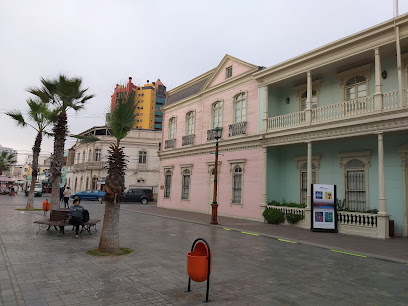
Museo Historico Militar
Explore the rich military history of Chile at Museo Historico Militar in Iquique, where artifacts and stories come alive against stunning coastal views.
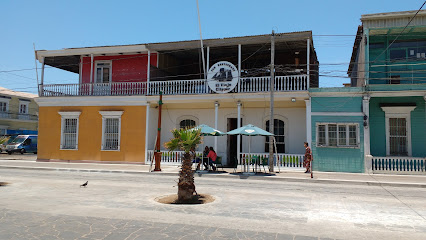
Monumento al Pampino
Explore the Monumento al Pampino in Iquique, a stunning tribute to the resilient saltpeter workers and a gateway to the city’s rich history.
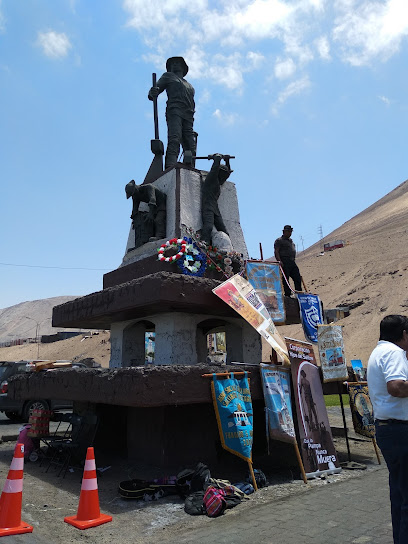
Paseo Playa Bellavista
Experience the stunning beauty and vibrant culture of Paseo Playa Bellavista in Iquique, a must-visit coastal gem in Chile.
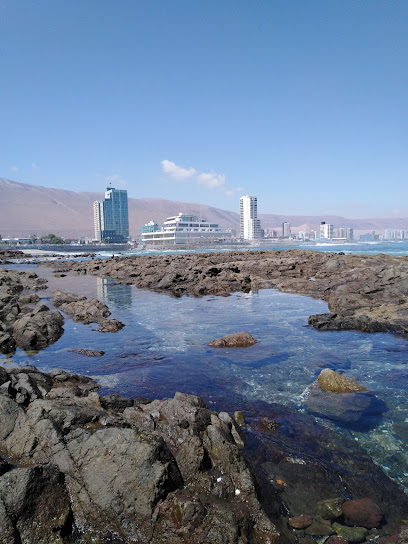
Monumento Boya Esmeralda
Explore the Monumento Boya Esmeralda in Iquique, a captivating historical landmark honoring maritime heritage with stunning ocean views.
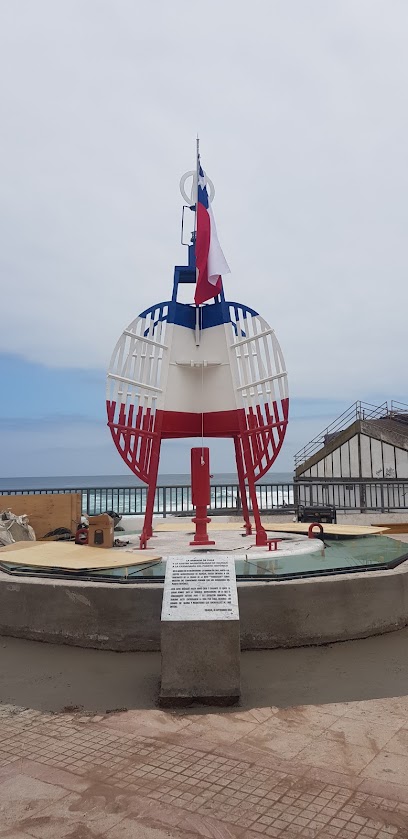
Cavancha Beach
Discover the beauty of Cavancha Beach in Iquique, Chile, where golden sands meet vibrant culture and endless adventure awaits.
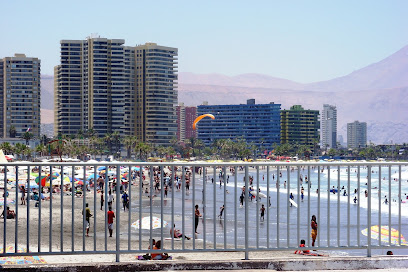
Paseo Peatonal baquedano. Iquique
Discover the lively Paseo Peatonal Baquedano in Iquique, Chile - a bustling pedestrian walkway rich in culture, shopping, and local cuisine.
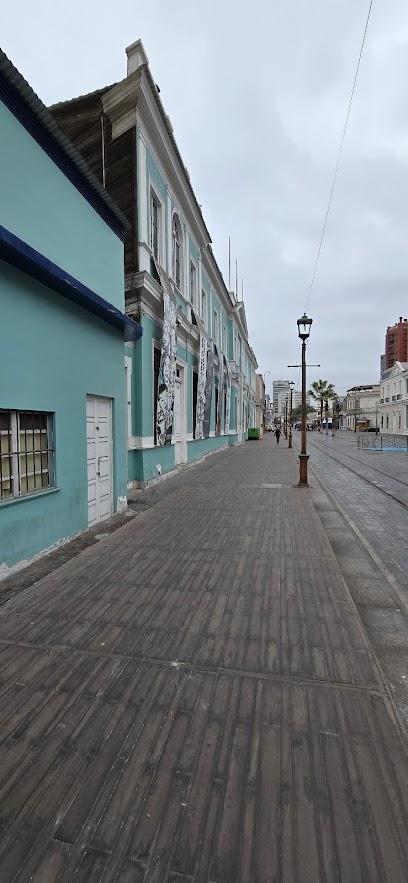
Essential places to dine
La Mulata
Experience the rich flavors of Chile at La Mulata in Iquique - where tradition meets modern culinary artistry.
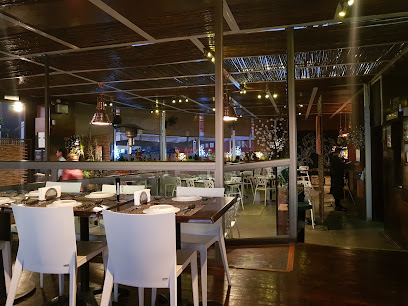
Doña Filomena - Pizzería Restaurant Bar Delivery
Experience the vibrant flavors of Doña Filomena in Iquique - where delicious pizzas meet lively ambiance.
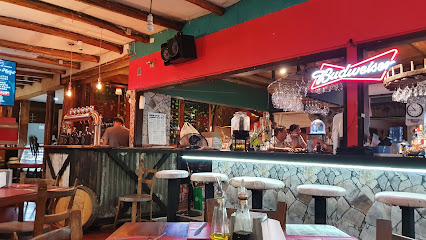
Neptuno
Discover Iquique's premier seafood destination at Neptuno - where fresh flavors meet coastal charm.
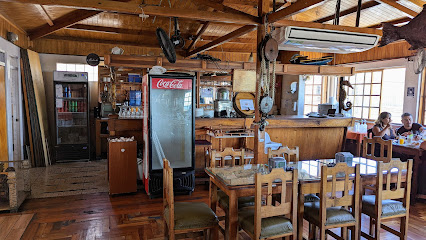
La Pulperia
Experience authentic Chilean flavors at La Pulperia in Iquique's vibrant Mall Zofri—perfect for food lovers seeking local culinary delights.
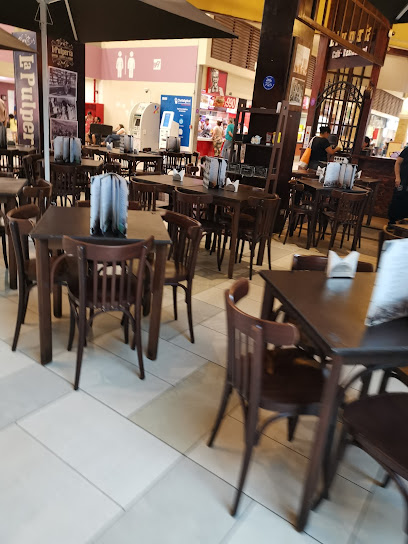
Santorini Restobar
Experience authentic Greek and Mediterranean cuisine at Santorini Restobar in Iquique – where every meal is a celebration.
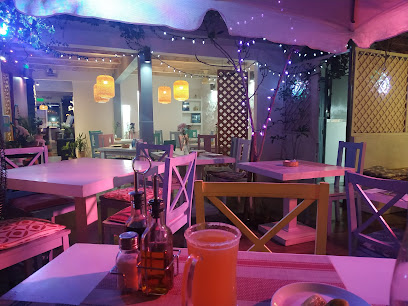
Chiringuito Cavancha Bar Restaurante
Experience authentic Chilean cuisine with stunning ocean views at Chiringuito Cavancha Bar Restaurante in Iquique.
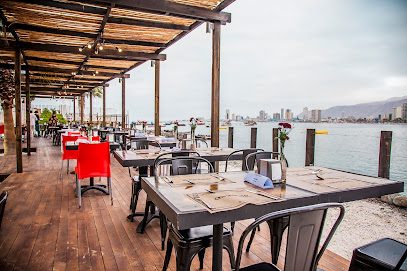
El Nuevo Arriero
Discover authentic Chilean flavors at El Nuevo Arriero, Iquique's culinary gem offering delicious dishes and a warm atmosphere.
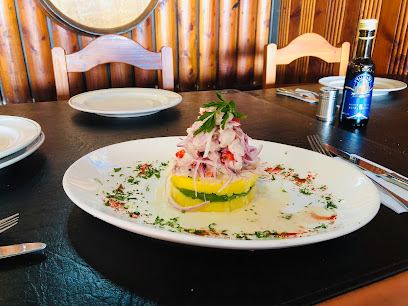
Ebisu Resto Bar
Discover Ebisu Resto Bar in Iquique - where exquisite Japanese sushi meets vibrant Peruvian flavors for an unforgettable dining experience.
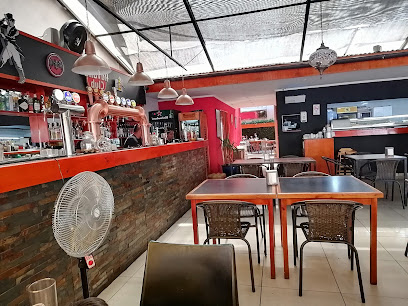
Rayu Restaurant
Experience the essence of Peruvian cuisine at Rayu Restaurant in Iquique – where every dish is crafted with passion.
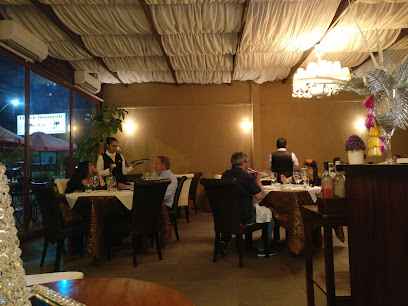
El Tercer Ojito
Discover authentic Chilean cuisine at El Tercer Ojito in Iquique - where every dish tells a story of local flavors and tradition.
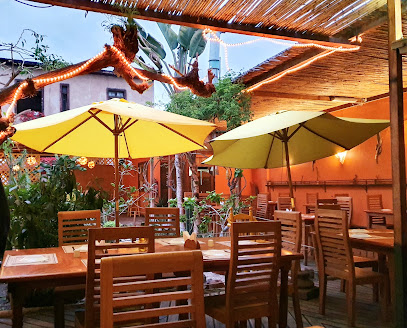
Restaurante El Viejo Clipper
Discover Restaurante El Viejo Clipper in Iquique: A delightful spot for fresh seafood and traditional Chilean cuisine amidst charming surroundings.
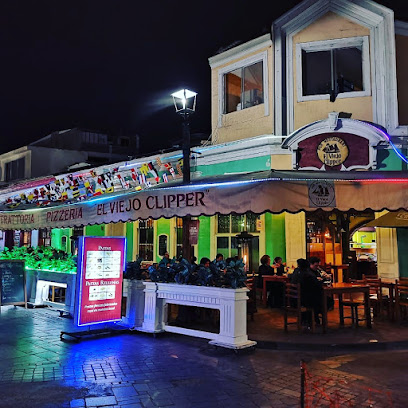
La Carreta Antonio
Discover La Carreta Antonio: A family-friendly restaurant in Iquique offering delicious Chilean cuisine and warm hospitality.
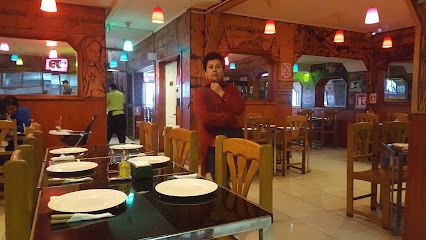
Caleta Buena restaurant
Discover Caleta Buena in Iquique: where fresh seafood meets traditional Chilean flavors amidst stunning coastal views.
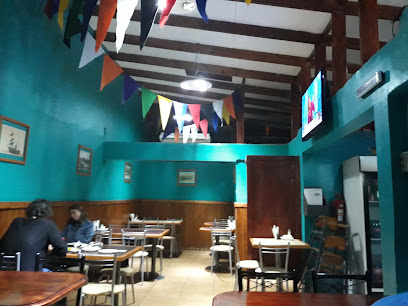
Don toro restaurante
Experience authentic Chilean cuisine at Don Toro Restaurante, where delicious flavors meet stunning ocean views in Iquique.
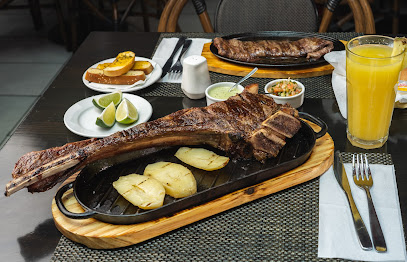
El rincón de Cachuperto
Discover the flavors of Chilean cuisine at El rincón de Cachuperto in Iquique – where every meal is a celebration of local culture.
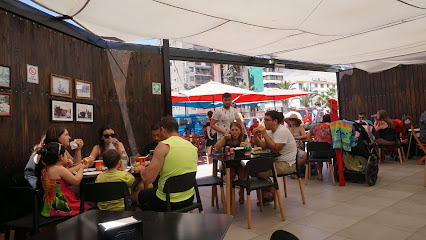
Markets, malls and hidden boutiques
Mall Zofri
Explore Mall Zofri in Iquique for a dynamic shopping experience with diverse stores, delicious dining, and vibrant entertainment.
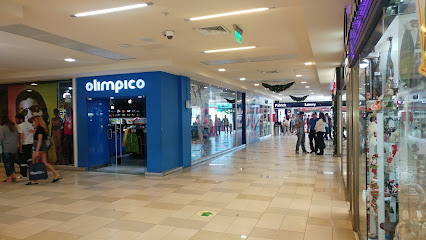
Mallplaza Iquique
Experience vibrant shopping, dining, and entertainment at Mallplaza Iquique, the ultimate destination for tourists in Iquique, Chile.
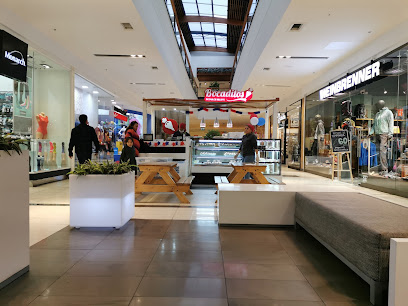
Falabella Iquique
Explore the vibrant shopping experience at Falabella Iquique, featuring a wide range of fashion, home goods, and unique local finds.
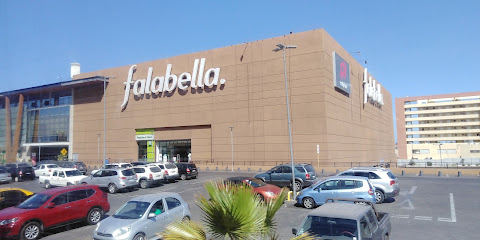
El Agro
Discover local fashion and unique apparel at El Agro, a vibrant clothing store in Iquique, Tarapacá, perfect for tourists and locals alike.
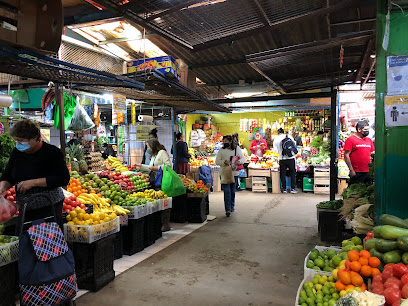
Mega Shopping
Explore Mega Shopping in Iquique: a vibrant destination offering a wide range of products and a delightful shopping experience.
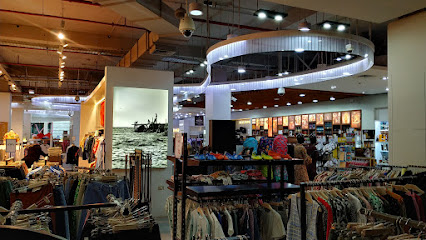
El lugar Secreto (Ropa deportiva, outlet)
Explore El Lugar Secreto in Iquique for unbeatable sportswear deals and stylish athletic apparel in a vibrant outlet atmosphere.
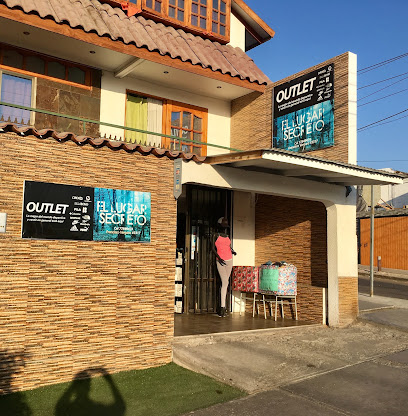
Barrio Opium
Explore Barrio Opium, Iquique's vibrant gift shop offering unique souvenirs and local crafts that capture the essence of Tarapacá's culture.
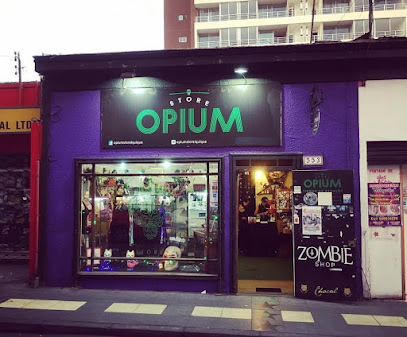
Mercury Outlet Iquique
Explore fashionable and affordable footwear at Mercury Outlet Iquique, your go-to shoe store in Iquique for all styles and budgets.
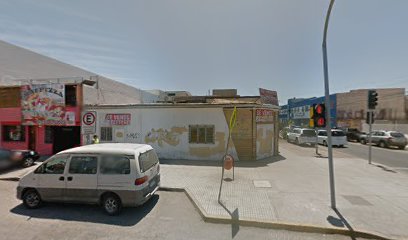
Galeria Bolivar
Experience the vibrant shopping culture of Iquique at Galeria Bolivar, featuring unique boutiques and delightful dining options.
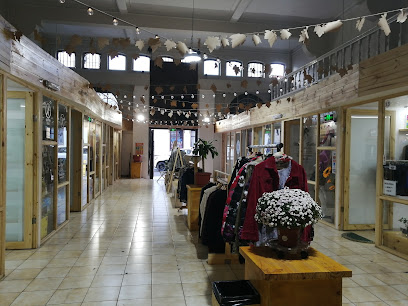
Boumex Mall Plaza Iquique
Explore exquisite jewelry and vibrant shopping at Boumex Mall Plaza Iquique, a must-visit destination for tourists in Iquique, Chile.
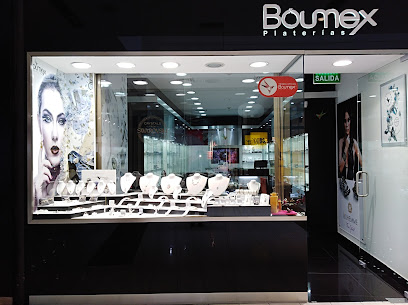
Ingenio Creativo Iquique
Discover Ingenio Creativo Iquique, a charming gift shop offering unique handcrafted treasures and authentic Chilean souvenirs in the heart of Iquique.

Vip Duty Free - Maletería y Bolsos
Discover stylish and affordable bags at Vip Duty Free in Iquique's Mall Zofri, perfect for every traveler's needs.
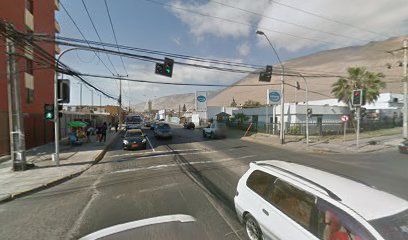
Latienditaregalona20
Explore Latienditaregalona20, where unique gifts and local crafts come together to create unforgettable souvenirs of your journey.

KLOTHINA OUTLET
Explore KLOTHINA OUTLET in Iquique for trendy clothing and accessories at unbeatable prices, a fashion haven for all shopping enthusiasts.
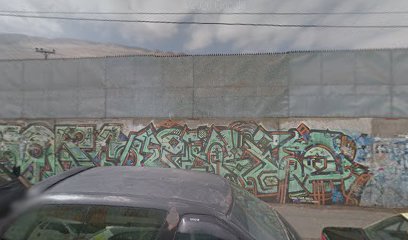
MillonLuxuryStore
Discover the elegance and sophistication of Millon Luxury Store, your premier shopping destination for high-end fashion and exclusive luxury items.

Essential bars & hidden hideouts
Hell Street Bar
Discover Iquique's nightlife at Hell Street Bar, where vibrant atmosphere and excellent drinks unite for an unforgettable experience.
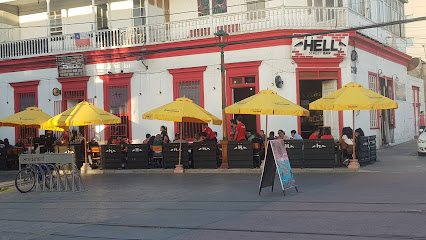
Bar Radicales
Discover the vibrant flavors of Iquique at Bar Radicales, where gastropub culture meets local culinary delights in a lively atmosphere.
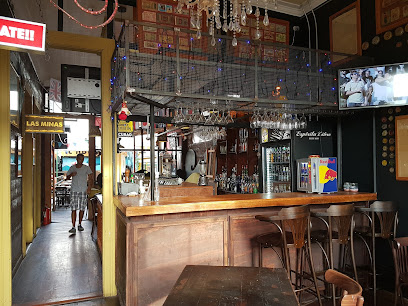
Valhalla - Paraíso Vikingo
Experience the best karaoke vibes in Iquique at Valhalla - Paraíso Vikingo, where music and fun unite for an unforgettable night.
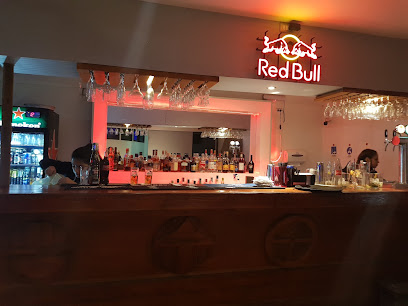
Barsovia
Discover the vibrant flavors of Chilean cuisine at Barsovia, Iquique's premier grill restaurant, offering a delightful culinary experience.
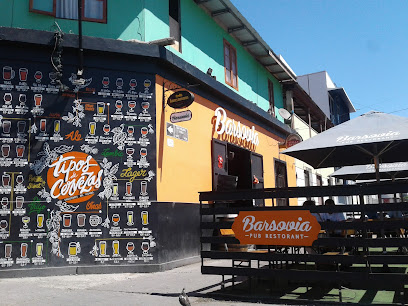
Jolly Roger Pub
Unleash your inner star at Jolly Roger Pub, Iquique's vibrant karaoke bar where drinks flow and fun abounds!
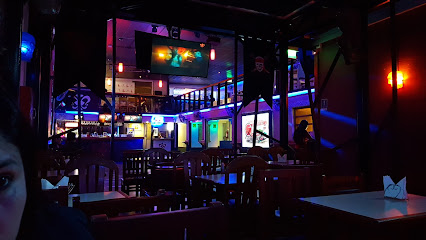
Siddhartha Lounge
Discover the vibrant flavors of Siddhartha Lounge, Iquique's premier gastropub, blending local and international cuisine in a lively atmosphere.
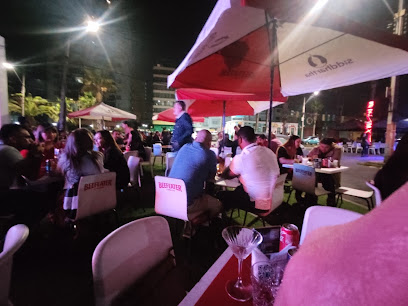
Pub The City Peninsula
Discover the vibrant nightlife at Pub The City Peninsula, where locals and tourists come together to enjoy drinks, music, and a warm atmosphere in Iquique, Chile.
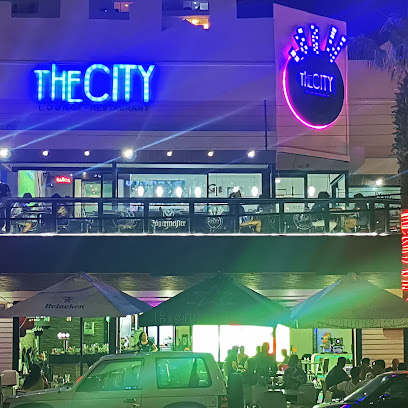
BARSTOW urban drinks &food
Experience the vibrant culinary scene at BARSTOW Urban Drinks & Food in Iquique, where grilled delights and refreshing drinks await.
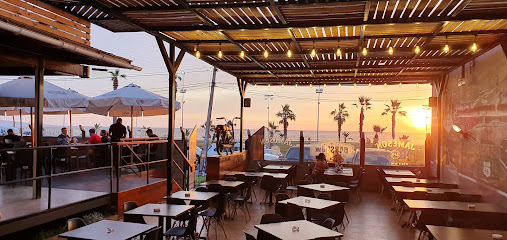
LA FABRICA
Experience the vibrant flavors of Iquique at La Fabrica, where every bite is a celebration of grilled culinary excellence.
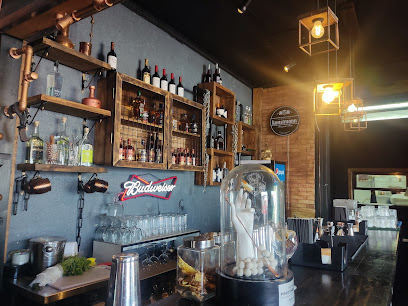
Comics Bar Music
Discover the electric atmosphere and unique comic-themed decor at Comics Bar Music in Iquique, perfect for a lively night out.
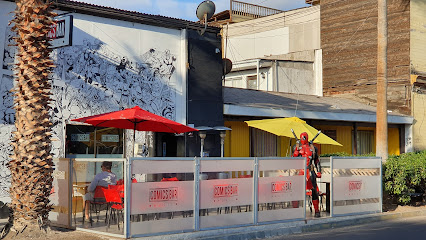
Bar Democratico
Experience the vibrant nightlife at Bar Democratico in Iquique, where locals and tourists unite over great drinks and unforgettable ambiance.
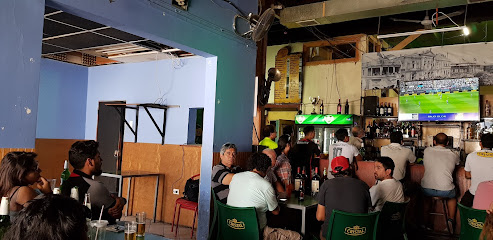
Estilo Urbano
Discover the essence of Iquique's nightlife at Estilo Urbano, a lively bar offering delicious sandwiches and a vibrant atmosphere.
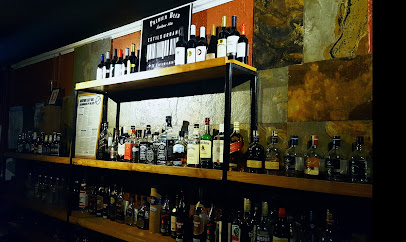
ROCKSTAR BAR
Experience the vibrant nightlife of Iquique at Rockstar Bar, where live music and local culture come together for an unforgettable evening.
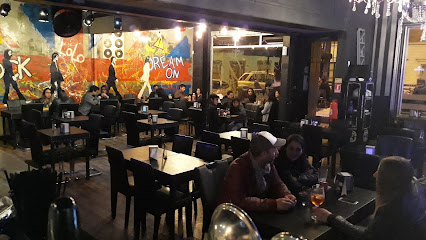
El Barril del Fraile
Discover the vibrant nightlife at El Barril del Fraile in Iquique, a bar offering a diverse drink selection and a lively atmosphere for tourists.
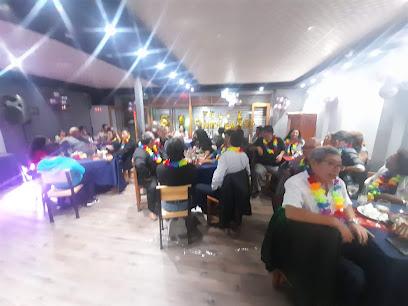
Local Phrases
-
- HelloHola
[oh-lah] - GoodbyeAdiós
[ah-dee-ohs] - YesSí
[see] - NoNo
[noh] - Please/You're welcomePor favor/De nada
[por fah-bor/de nah-dah] - Thank youGracias
[grah-see-ahs] - Excuse me/SorryDisculpe/Perdón
[dees-kool-peh/pehr-dohn] - How are you?¿Cómo estás?
[koh-moh ehs-tahs] - Fine. And you?Bien. ¿Y tú?
[byen. ee too] - Do you speak English?¿Hablas inglés?
[ah-blahs een-glays] - I don't understandNo entiendo
[noh ehn-tee-ehn-doh]
- HelloHola
-
- I'd like to see the menu, pleaseMe gustaría ver el menú, por favor
[meh goos-tah-ree-ah behr ehl meh-noo, por fah-vor] - I don't eat meatNo como carne
[noh koh-moh kahr-neh] - Cheers!¡Salud!
[sah-lood] - I would like to pay, pleaseMe gustaría pagar, por favor
[meh goos-tah-ree-ah pah-gahr, por fah-vor]
- I'd like to see the menu, pleaseMe gustaría ver el menú, por favor
-
- Help!¡Ayuda!
[ah-yoo-dah] - Go away!¡Vete!
[veh-teh] - Call the Police!¡Llama a la policía!
[yah-mah ah lah poh-lee-see-ah] - Call a doctor!¡Llama a un doctor!
[yah-mah ah oon dohk-tohr] - I'm lostEstoy perdido
[ehs-toy pehr-dee-doh] - I'm illEstoy enfermo
[ehs-toy ehn-fehr-moh]
- Help!¡Ayuda!
-
- I'd like to buy...Me gustaría comprar...
[meh goos-tah-ree-ah kohm-prahr...] - I'm just lookingSolo estoy mirando
[soh-loh ehs-toy meer-ahn-doh] - How much is it?¿Cuánto cuesta?
[kwan-toh kwehs-tah] - That's too expensiveEs demasiado caro
[ehs deh-mah-syah-doh kahr-oh] - Can you lower the price?¿Puedes bajar el precio?
[pweh-dehs bah-hahr ehl pree-syoh]
- I'd like to buy...Me gustaría comprar...
-
- What time is it?¿Qué hora es?
[keh oh-rah ehs] - It's one o'clockEs la una
[ehs lah oo-nah] - Half past (10)Diez y media
[dyehs ee meh-dee-ah] - MorningMañana
[mah-nyah-nah] - AfternoonTarde
[tahr-deh] - EveningNoche
[noh-cheh] - YesterdayAyer
[ah-yehr] - TodayHoy
[oy] - TomorrowMañana
[mah-nyah-nah] - 1Uno
[oo-noh] - 2Dos
[dohs] - 3Tres
[trehs] - 4Cuatro
[kwah-troh] - 5Cinco
[seen-koh] - 6Seis
[sehs] - 7Siete
[syeh-teh] - 8Ocho
[oh-choh] - 9Nueve
[nweh-veh] - 10Diez
[dyehs]
- What time is it?¿Qué hora es?
-
- Where's a/the...?¿Dónde está...?
[dohn-deh ehs-tah] - What's the address?¿Cuál es la dirección?
[kwal ehs lah dee-rek-syohn] - Can you show me (on the map)?¿Puedes mostrarme (en el mapa)?
[pweh-dehs mohs-trar-meh (ehn ehl mah-pah)] - When's the next (bus)?¿Cuándo es el próximo (bus)?
[kwan-doh ehs ehl proh-ksee-moh (boos)] - A ticket (to ....)Un boleto (a ....)
[oon boh-leh-toh (ah ....)]
- Where's a/the...?¿Dónde está...?
History of Iquique
-
The area around Iquique has been inhabited for thousands of years prior to the arrival of the Spanish. Indigenous cultures, such as the Chango people, lived along the coast, relying on fishing and maritime activities for their sustenance. Archaeological findings indicate that these early inhabitants cultivated a rich cultural heritage that has influenced the region to this day.
-
In the mid-16th century, Spanish explorers arrived in the region, drawn by the potential for resource extraction. However, the arid desert environment presented significant challenges, and it wasn't until later that the area began to see more substantial colonial development. The Spanish established a few small settlements, but the region remained relatively underdeveloped compared to other parts of Chile.
-
The late 19th century marked a significant turning point for Iquique with the discovery of rich nitrate deposits in the Atacama Desert. This 'white gold' led to an economic boom, transforming Iquique into a bustling hub of activity. The city's port became a critical point for exporting nitrate worldwide, attracting workers from various countries and fostering a cosmopolitan atmosphere.
-
Iquique played a crucial role in the War of the Pacific (1879-1884), a conflict between Chile, Bolivia, and Peru over control of nitrate-rich territories. The naval Battle of Iquique on May 21, 1879, is one of the most famous events in Chilean history. The Chilean ship Esmeralda, commanded by Captain Arturo Prat, faced off against the Peruvian ironclad Huáscar. Despite being heavily outgunned, Prat's valiant efforts became a symbol of national pride and heroism.
-
In the early 20th century, Iquique became a focal point for labor movements and social struggles. The harsh working conditions in the nitrate mines led to widespread discontent among workers. The 1907 Santa María School massacre is a tragic episode in which hundreds of striking workers and their families were killed by government forces. This event highlighted the intense social and economic inequalities of the time and had a lasting impact on labor rights in Chile.
-
In recent decades, Iquique has diversified its economy beyond nitrate mining. The city has developed as a major port and free trade zone, attracting businesses and boosting tourism. Modern Iquique boasts beautiful beaches, a vibrant nightlife, and a mix of historical architecture and contemporary developments. The city also hosts numerous cultural festivals and events, reflecting its rich and diverse heritage.
Iquique Essentials
-
Iquique is served by the Diego Aracena International Airport (IQQ), which is located approximately 45 kilometers south of the city. The airport receives flights from major cities in Chile, including Santiago, as well as some international flights. From the airport, you can take a taxi or an airport shuttle service to reach the city center. Alternatively, long-distance buses connect Iquique to other cities in Chile, such as Arica, Antofagasta, and Santiago. These buses are comfortable and offer various classes of service.
-
Within Iquique, you can get around using public buses, taxis, and colectivos (shared taxis). Public buses are an affordable option and cover most parts of the city. Taxis are readily available and can be hailed on the street or booked via phone. Colectivos follow fixed routes and are shared with other passengers, making them a cost-effective option. Renting a car is also possible and can be convenient for exploring the surrounding areas, including the Atacama Desert and nearby coastal towns.
-
The official currency in Chile is the Chilean Peso (CLP). Credit and debit cards are widely accepted in Iquique, especially in hotels, restaurants, and larger stores. However, it is advisable to carry some cash for smaller establishments, markets, and public transport. ATMs are plentiful in the city, and most accept international cards. Currency exchange services are available at the airport, banks, and exchange offices in the city center.
-
Iquique is generally a safe city for tourists, but it is important to remain vigilant, especially in crowded areas like markets and bus stations, where petty theft can occur. Avoid carrying large amounts of cash and keep your belongings secure. Some neighborhoods, such as the area around the Zofri Free Trade Zone, can experience higher crime rates, so exercise caution when visiting. Avoid walking alone at night in poorly lit areas and always use reputable taxi services.
-
In case of emergency, dial 133 for police, 131 for medical emergencies, and 132 for the fire department. The main hospital in Iquique is the Hospital Regional de Iquique, which provides comprehensive medical services. Pharmacies are widely available for minor health issues. It is recommended to have travel insurance that covers medical emergencies and other unforeseen events. Make sure to carry a copy of your insurance policy and emergency contact numbers.
-
Fashion: Do dress comfortably and practically, especially if you plan to explore the desert or coastal areas. Light clothing, sunscreen, and a hat are essential. Avoid overly revealing clothing in more conservative areas. Religion: Do respect local customs and religious practices. When visiting churches, dress modestly and maintain a respectful demeanor. Public Transport: Do have small change available for bus fares. Don't play loud music or talk loudly on public transport. Greetings: Do greet people with a handshake and maintain eye contact. A friendly 'Hola' is always appreciated. Eating & Drinking: Do try local seafood and traditional dishes like empanadas and pisco sour. Don't refuse food or drink offerings, as it may be considered impolite.
-
To experience Iquique like a local, visit the Mercado Centenario, where you can buy fresh produce and sample local delicacies. Spend time at Playa Cavancha, a popular beach where locals gather to surf, swim, and relax. Explore the historic district of Baquedano Street, with its well-preserved 19th-century architecture. Don’t miss the chance to visit the nearby Humberstone and Santa Laura Saltpeter Works, UNESCO World Heritage Sites that offer a glimpse into the region's mining history. Engage with locals, who are often friendly and happy to share insights about their city.
Trending Landmark in Iquique
Nearby Cities to Iquique
-
Things To Do in Arica
-
Things To Do in Tacna
-
Things To Do in Uyuni
-
Things To Do in San Pedro de Atacama
-
Things To Do in Antofagasta
-
Things To Do in Arequipa
-
Things To Do in Potosi
-
Things To Do in Copacabana
-
Things To Do in La Paz
-
Things To Do in Puno
-
Things To Do in Cochabamba
-
Things To Do in Sucre
-
Things To Do in Tarija
-
Things To Do in Salta
-
Things To Do in Cusco










